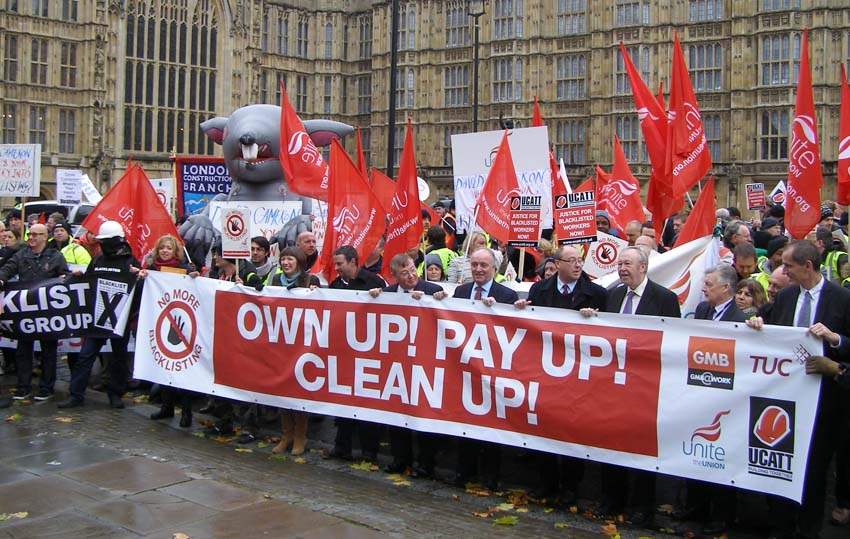LEADERS of many of the largest and most prominent trade unions in the UK, have jointly signed a letter demanding that immediate action is taken to ensure transparency in the Mittings public inquiry into undercover police officers.
The letter is a result of increasing concerns that the crucial next stage of the Mitting’s Inquiry, which is due to hold oral evidence sessions from 21 April to 14 May and will examine the role of the Special Demonstration Squad (SDS) between 1973 and 1983, will not be transparent.
Unlike the Grenfell public inquiry, which has been successfully live-streamed, Judge Mittings has ruled against this approach for the spy cops public inquiry.
The signatories to the letter are: Len McCluskey general secretary of Unite, Mick Whelan general secretary of train drivers union Aslef, Sarah Woolley general secretary of the Bakers Food and Allied Workers Union (BFAWU), Ian Hodson president BFAWU, Roy Rickhuss general secretary of Community, Dave Ward, general secretary of the Communication Workers’ Union (CWU), Matt Wrack general secretary of the Fire Brigades Union (FBU), Warren Kenny acting general secretary of the GMB, Horace Trubridge, general secretary of the Musicians Union, Kevin Courtney general secretary of the National Education Union (NEU),Chris Kitchen, general secretary of the National Union of Mineworkers (NUM), Manuel Cortes general secretary of the Transport and Salaried Staff Association (TSSA), Gail Cartmail president of the TUC and Paddy Lillis general secretary of shop workers union USDAW.
In the first tranche of evidence, given in November 2020, only people who could attend a central London hotel were able to see a livestream of the inquiry, meaning the vast majority of core participants and the general public were denied proper access. The letter states that the provisions to keep both the core participants and the general public informed were ‘wholly inadequate and ineffective’.
The trade union leaders are also alarmed that Judge Mittings has made no commitment to release all of the cover names of the undercover police officers, nor all of the groups that were spied upon.
This failure is likely to mean that there are hundreds, if not thousands, of people actively spied upon by the police – including individuals who may have been tricked into intimate relationships with undercover officers – who will remain unaware of what occurred.
The trade unionists also raised concerns to Judge Mittings about the use of restriction orders relating to undercover police officers who have stated that they cannot give evidence in public. The letter argues that ‘where a restriction order remains in place, appropriate safeguards can be put in place such as screens etc, to protect identities.’
In summing up their concerns the trade union leaders state: ‘We demand justice for all and hope you agree to the requests in this letter.’
Concerns about the transparency and the scope of the Mittings Inquiry have greatly increased following the revelation this week by Norman Tebbit that he was frequently briefed by Special Branch on the activities of trade unionists, while he was employment secretary.
With the next round of evidence dealing with the period from 1973, there will be intense interest about whether the SDS had any involvement in the jailing of the Shrewsbury Pickets, or any of the resulting campaigns to secure justice for them. This is particularly topical following the Court of Appeal decision on Tuesday, 23 March, to quash the convictions against the pickets, after a 48 year campaign for justice.
Unite general secretary Len McCluskey said: ‘The fundamental principle of a public inquiry is that it must be transparent, be able to get to the truth and be accessible to the general public. . .
‘If Judge Mittings wishes for his inquiry to have any credibility then he must ensure that proceedings are live-streamed and that as a minimum all police cover names and all groups that were affected are made
public.’
